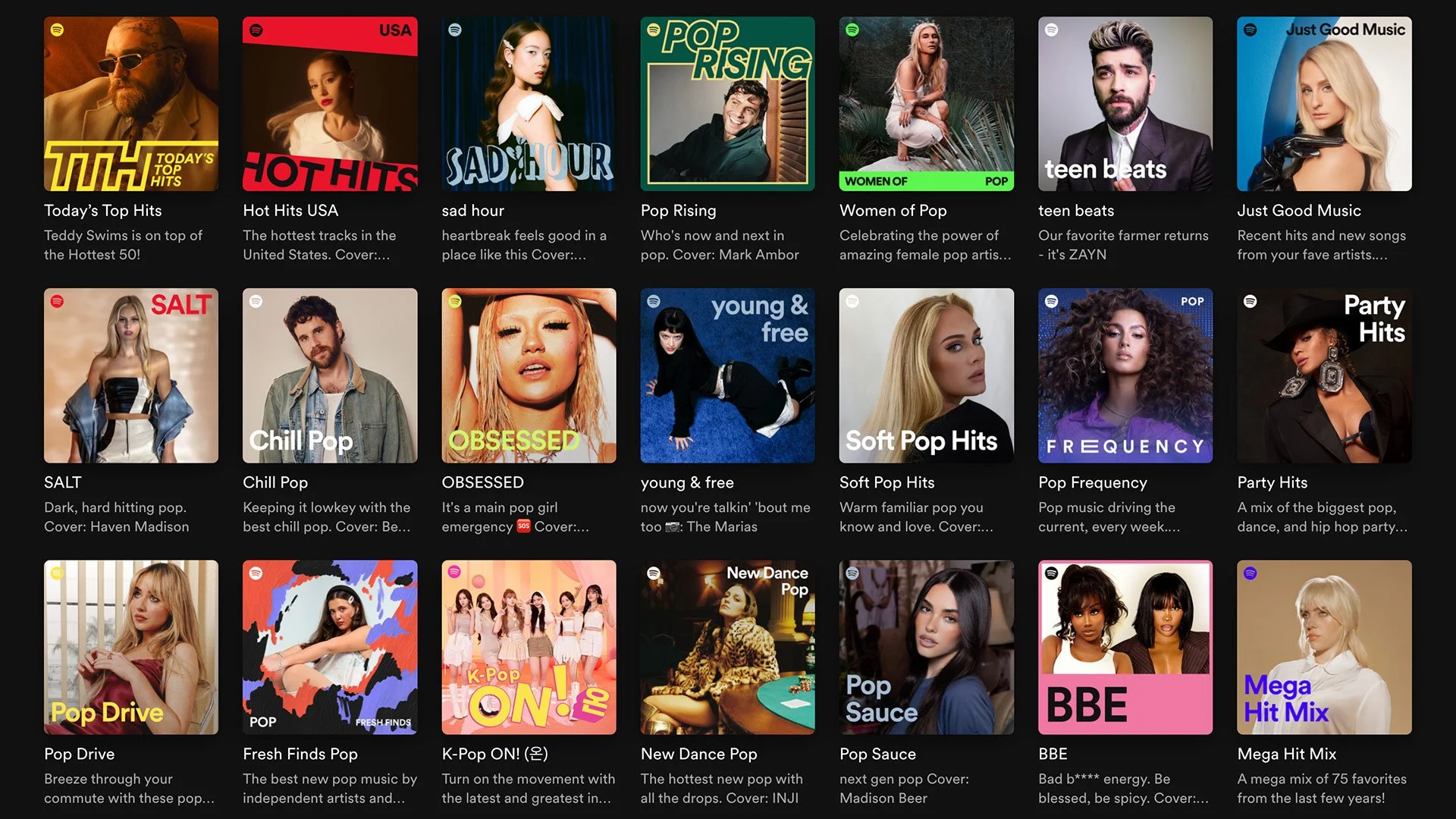How To Get Your Music on a Spotify Editorial Playlist
First, note that the only way to submit for consideration is through Spotify for Artists. If you're not currently signed up and have music released on Spotify, I highly recommend you do so. Beyond submitting to playlists, the platform is a near requirement to be on if you want to pursue a music career effectively.
Get on Spotify for Artists
To submit, navigate to the "Upcoming Music" section and hit "Pitch Song." Now, you'll be prompted to give basic information about yourself and the song. I’d suggest being as straightforward as possible here and defining your song accurately. At some point during the process, you will be prompted to "add a description." This is the part where we can be a little clever, which I'll go over below.
Choose the Right Distribution
Another critical factor in your potential success with landing a sweet playlist is who you're distributing with. If you go with any of the basic options like Distrokid, CDbaby, or Tunecore, you're on your own for the most part. If you upgrade to a more robust (and expensive) distro, you will gain access to a sales team that can help push for playlist placements. Companies like Symphonic, The Orchard, and STEM may be more selective in who they work with, but it's because they tend to spend more time and money on helping those artists' releases go forward. That said, it's an extra edge over the competition, but there's no guarantee that their help will help your song go the distance.
Release Consistently
Spotify is interested in artists who are committed to their careers, and the best way to prove that is you is by consistently releasing music. There is power in awareness; seeing your music pop up in pitches consistently throughout the year will prove to their team that you're an artist worth investing in. Remember, Spotify's decisions on who to place in playlists also reflect on them as tastemakers, and they want solid bets — which are artists who are in it for the long haul.
Think Small
Spotify does not immediately put you in its biggest playlists. Instead, it wants to test you on smaller, more niche playlists. These playlists could be ones focused on specific sub-genres (like SALT), moods (Chill Vibes), or music utilities (GYMCORE). Understand what playlists would work best for your music.
How to Write Your Pitch
Here is where the real meat and potatoes are when formulating your pitch. There are a few things we need to make sure this covers in a very brief 500-character limit. I'll break it down and then give you some examples.
The first sentence of your pitch should focus on your song's mood, moments, and emotions, not its process or topic. Don’t focus on your process or what the song is about; instead, connect it immediately to the value for the listener or playlist.
Instead of saying, "Our new song Tongue Tied was produced with Joe Schmoe and fancy-butt studio, it's about blah blah blah," focus on the value of the song and make the curator's job as easy as possible.
For example:
"Tongue Tied is the high energy, happy, electric summer anthem you need to fuel your pregame party or get started on that New Year resolution run."
Or
"9MM is the first song out of your car speakers as you hit the highway or turn on your Xbox."
The more concise and specific, the better.
Next, give a quick recommendation for playlists. It's important to start small, especially if you've never been added to a playlist. Go hunt down actual playlists you think you'd be great for.
"Its high energy would be great on Pregame or My Life is a Movie playlist."
"Perfect for Spotify playlists like Phonk or Night Drive."
Finally, finish your description with a brief overview of how you will market the song. Bonus points if you're specific about how you will be promoting Spotify in particular.
"We have a full PR campaign, an influencer marketing campaign, and a strong content strategy."
Or
"Along with a content rollout, we will be investing $5000 in advertising, specifically sending people to Spotify."
Let’s Be Realistic
Your chances of being added to a playlist are fairly low in the beginning. It's an extremely competitive space, and you should not beat yourself up for not being added. Likewise, you should not count on it for your marketing strategy. It should be a bonus to your efforts, not the crux. I can tell you firsthand that artists who are successful in getting added to playlists only really benefit from it by still doing all the other vital marketing strategies.
One of the most frustrating and confusing aspects of being a musician is fighting for a spot on one of Spotify's vaulted playlists. While we don't see it as a valid path to long-term success in music, we understand its power over the trajectory of an artist's success. While major labels might be able to put their finger on the scales, the rest of us need to go through official channels to pitch our music. Regardless, we've learned a few tips and tricks on how to get the best advantage you can when submitting.

